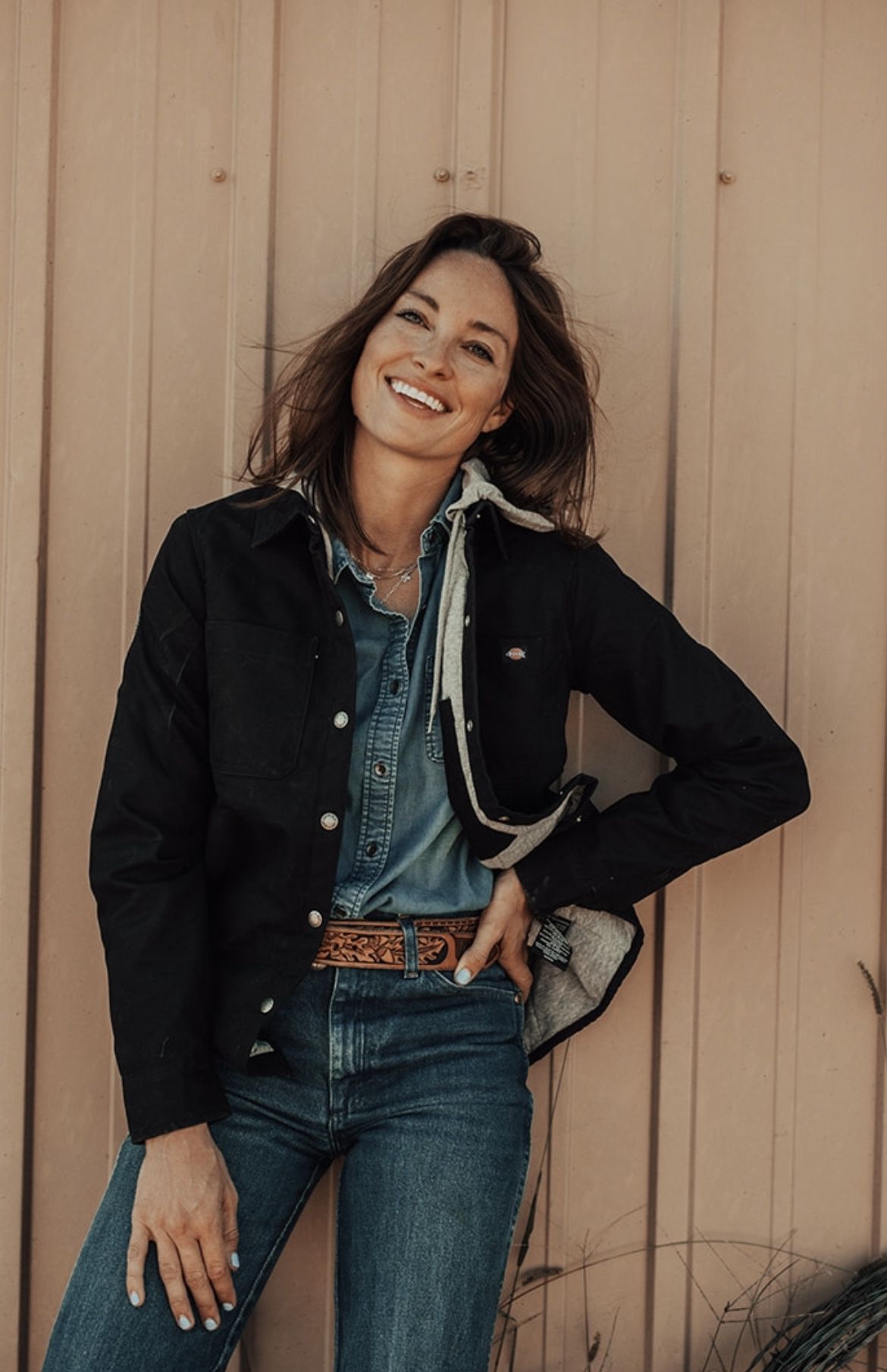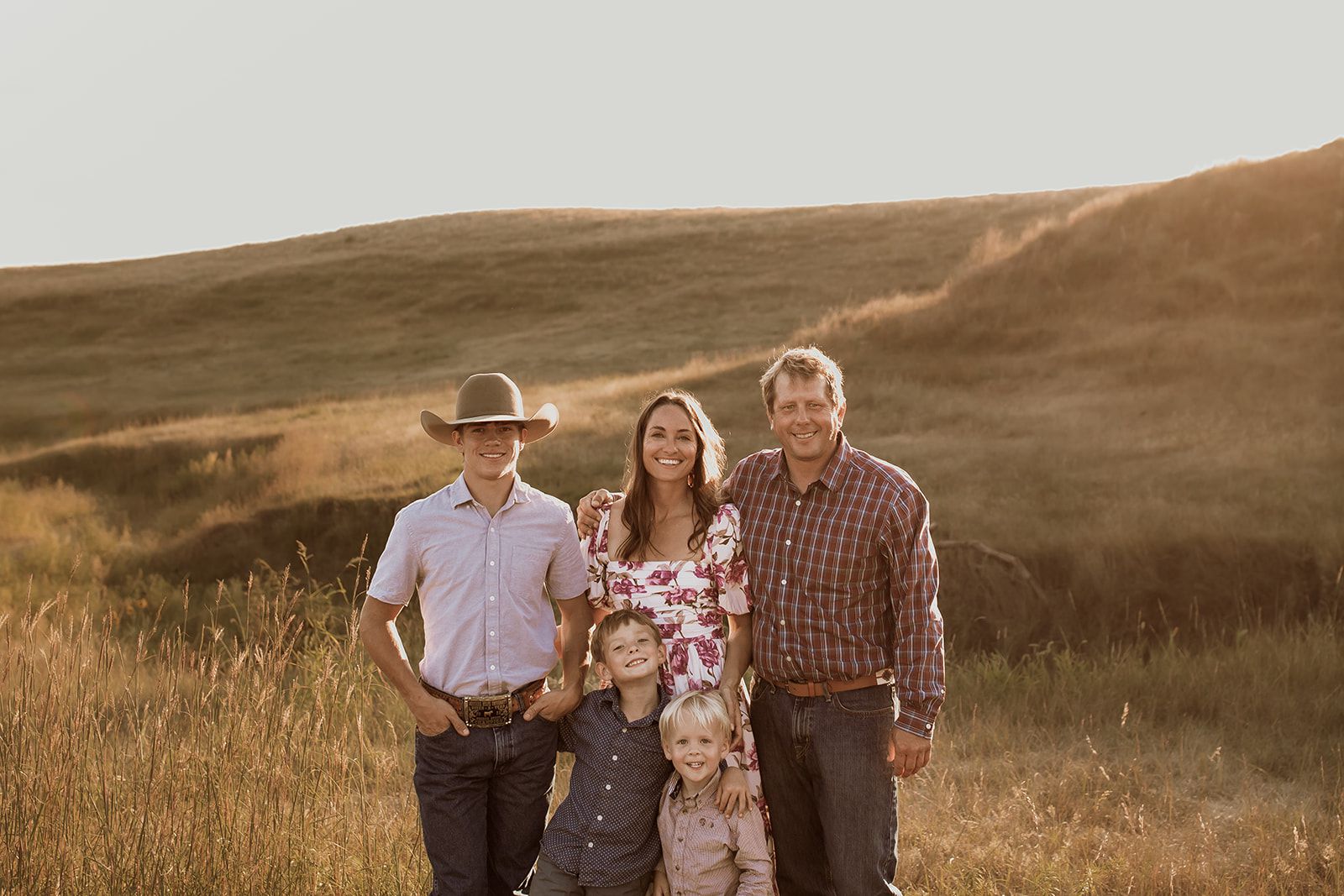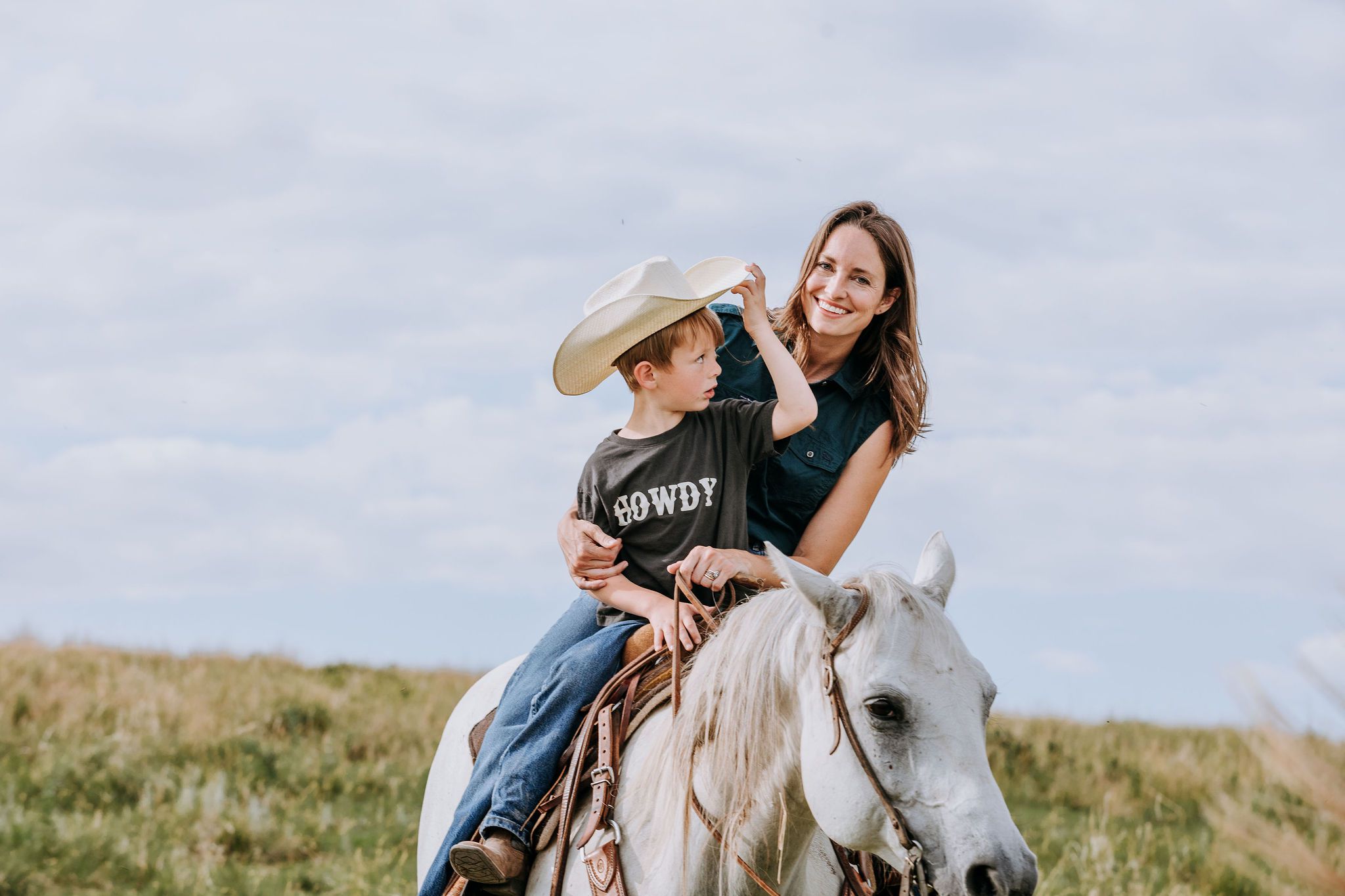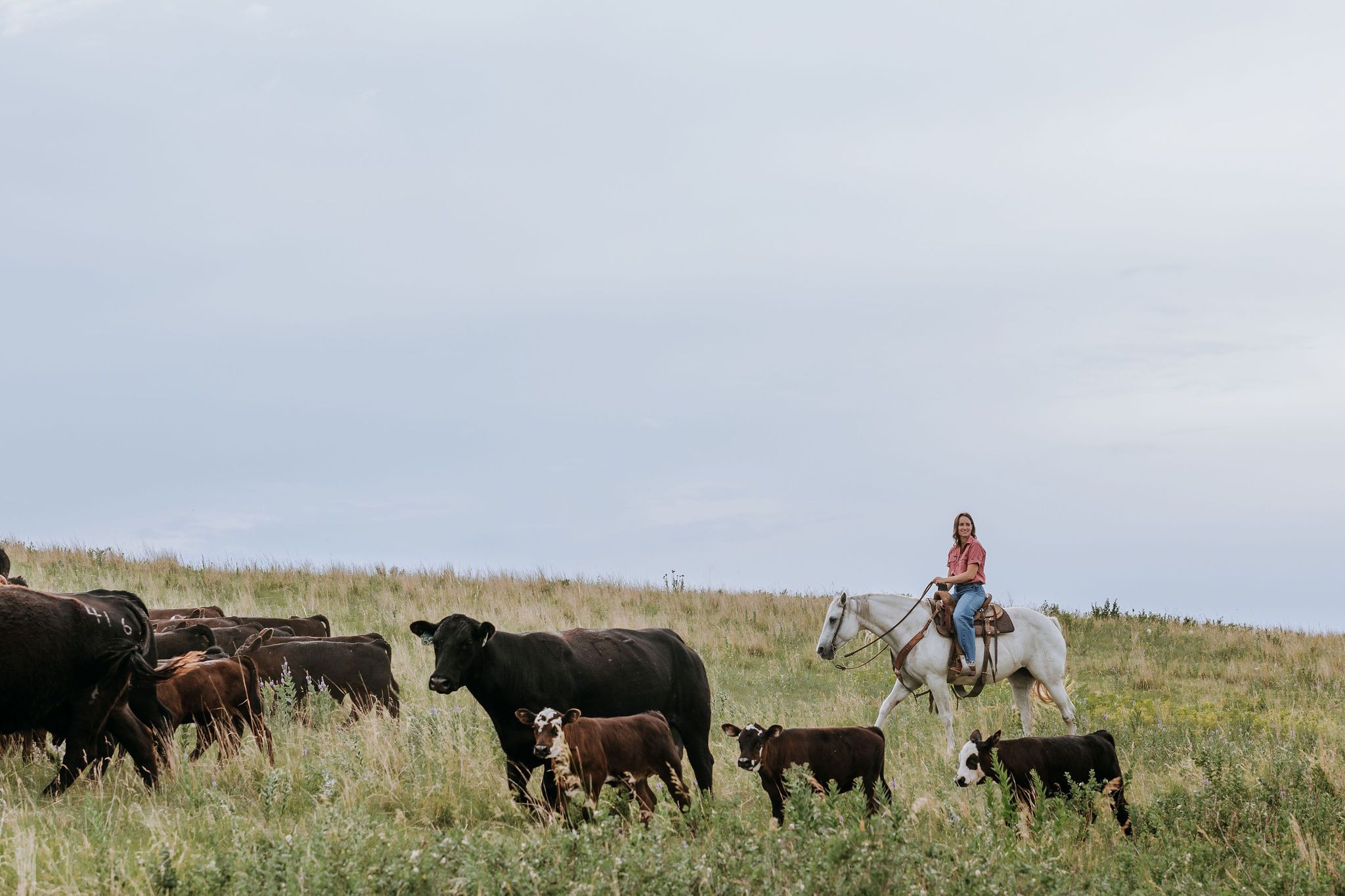Experienced Rookie Building Trust in Agriculture Through Online Platforms
Published
8/7/2024
The story of Natalie Kovarik’s influence in agriculture is effective because of apparent contradictions. The Nebraska rancher has a growing legion of followers – or discos as devotees to the ‘Discover Ag’ podcast are known – in which she and her co-host Tara Vander Dussen try to build connections to the very tangible world of agriculture through virtual experiences. Kovarik and her husband Luke are getting to forge their own traditions and best practices as the first-generation owners of their own cattle ranch – Kovarik Cattle Company – and yet she has decades of experience growing up in a ranching family in southwest Montana. However, one thing that has no contradiction is Natalie’s dedication to helping build trust in agriculture – whether that is for new young farmers in rural communities or a young mother living in suburbia or the big city.
Natalie grew up with three older sisters working on her family’s cattle ranch near Bozeman, Montana. Though loving that lifestyle, she said her parents gave their children the “gift of a choice” when it came to staying on the ranch.
“My parents wanted to make sure that if we decided to come back to the ranch, it was because we were choosing to. Not because we felt compelled or forced to,” Kovarik said. “So, they encouraged us all to get training or education off the farm to help us make that choice.”

After doing undergraduate work at Washington State University, Natalie decided to go to pharmacy school at the University of Montana and became a pharmacist. She enjoyed her time working in medicine until a fateful day came as she was helping at her family’s ranch. Cattle ranching can be quite diversified in what a family wants to focus on. While most ranches raise cattle that eventually enter the food system, others specialize in genetics and raising quality breeding animals for other cattle ranches to buy and incorporate into their own ranch.
This was the case for Natalie’s family, and they were hosting a bull sale on their ranch when she met Luke Kovarik, a rancher from Nebraska who had come to purchase a bull. After dating long distance, the two got married and Natalie moved to the Sandhills region in north-central Nebraska where Luke was from. She was still working as a pharmacist, while also working alongside her husband in various agricultural pursuits when the couple made a few choices that would change their lives forever.

Taking a Risk
With the first choice, the couple decided to follow their heart. They dropped their off-farm jobs and focused exclusively on growing the ranch Luke started when he came home from college as their main income source. Though both were raised in agriculture, building this 1st generation ranch gave them to chance of growing their business from the ground up the way they saw best.
“I knew the industry and my background helped me know some of what to expect in this new role, but it is a lot different when you’re the one having to make the ultimate decisions compared with simply growing up on the ranch,” Natalie said. “But it is very rewarding to build this ranch with my husband into something of a legacy. We’re not captive to tradition to have to do things the way they always have been done and are able to make the decisions with just the two of us.”

Natalie acknowledges there are benefits to continuing a multi-generation ranch, and stresses of trying to start one on your own. There is no perfect template of how to get their ranch going, and the next major decision Natalie made definitely didn’t come from the beginner’s guide to ranching.
Betting on Herself
Like most industries, technology has transformed the way many in agriculture do business, such as automating certain jobs or enabling more informed decision-making. It can speed up production cycles and shorten the distance between a business and its customers. It has also shortened the distance between consumers and the many details surrounding how their food gets to their plate. This is where Natalie saw an opportunity, if not right away.
“After running and launching this direct-to-consumer beef business with my friend for two years, I realized it wasn’t a perfect fit for our family ranch, but I saw the potential to influence people beyond just selling beef,” Natalie said.
After stepping away from that beef business, Natalie was at a conference learning about online marketing and heard from employees of YouTube about the interest in agriculture they were seeing on the backend of the platform. All of the information was telling them about the potential to influence others. She decided to bet on herself.
“I told my husband that I wanted to tell our story more and influence others about agriculture,” she said. “But the interest was in the people behind, not the beef itself. In my gut, I knew there was something here. So, I made the decision to build a brand around myself.”

More than just a passion project, Natalie knew she could be successful and could make a business out of influencing. She dedicated herself to this new project 100 percent and has steadily grown opportunities for her family by sharing her love of agriculture, of food, and the lifestyle of agriculture. While initially focusing on YouTube, Natalie has found her niche by focusing on Instagram and the popular podcast ‘Discover Ag’.
“It takes a lot of work. A common misconception is that it’s easy to be successful doing this,” Natalie said. “Many are surprised to learn the money and time you need to invest into being successful. It’s hard to have your phone out a lot and my husband had to get used to it, but once I could show how the things I was talking about and sharing helped the bottom line, he was even more supportive.”
Trust, Not Just Information
One of the things Natalie enjoys most about her time spent online engaging with others is the ability to share multiple sides of current issues surrounding food and agriculture in ways that can connect to younger generations.
“There is a great interest, maybe more than ever before or more than in a long time, to connect to our food and where it comes from. But people are doing it in a different way now than before,” Natalie said. “People used to read long-form stories of complex issues, getting multiple perspectives that were vetted and thought out, and now, most of us are really busy and our knowledge is driven more by soundbites and headlines. And unfortunately, because many are disconnected from their food sources, there are a lot of misconceptions about it that are spread. Those are hard to correct or unlearn.”

But Kovarik doesn’t put the responsibility of deciphering fact from fiction on consumers, rather, she takes it head-on as her opportunity to share her experience and connect with others so they can trust her.
“I don’t think consumer education is as important as consumer trust,” Natalie said. “Some things we understand simply because we’ve been living in this industry and lifestyle, but we can’t expect others to be that way. We just need to focus on helping consumers trust that farmers and ranchers know how to make the best decisions for producing food.”
With that emphasis on trust, Natalie is quick to point out that this doesn’t limit efforts by farmers and ranchers need to make to keep reaching out and building relationships, nor does it limit the choices consumers have on how they want to consume food.
“There is so much nuance in our conversations about food. People often want to make choices based on a simple ‘this’ or ‘that’ variable based on science, but nature just doesn’t work that way,” Natalie elaborated. “I’m often asked by people to help guide them on the kinds of foods they should buy, but I ask them to tell me what’s important to them, and then I can help guide them. If the environment is ultimately important, then that can lead to certain food choices. If price is the most important, then that can be another set of choices, etc.
“Our food system is a spectrum of choices, not something that is cut & dry,” Kovarik continued. “These food choices will involve all kinds of trade-offs, but people don’t like to think of that with their food.”
Growing a Brand and Growing Trust
With time spent refining her brand, Natalie has been able to grow her influence in ways unimagined, from speaking opportunities and working with brands, to presenting at the South by Southwest (SXSW) conference in Austin. Presenting with her podcast co-host at this major culture festival was an opportunity to connect consumers to someone who has a direct influence on their food. Kovarik hopes connecting farmers and consumers – either face-to-face or through a social media or podcast feed will help humanize our food system and lead to increased trust so that all will thrive.
Want more news on this topic? Farm Bureau members may subscribe for a free email news service, featuring the farm and rural topics that interest them most!
